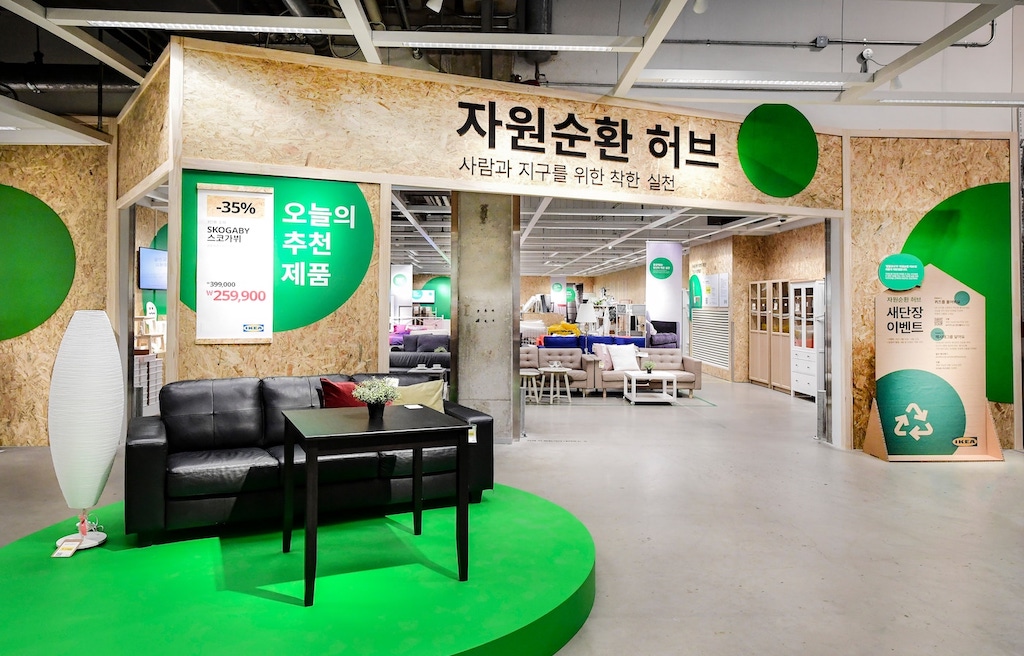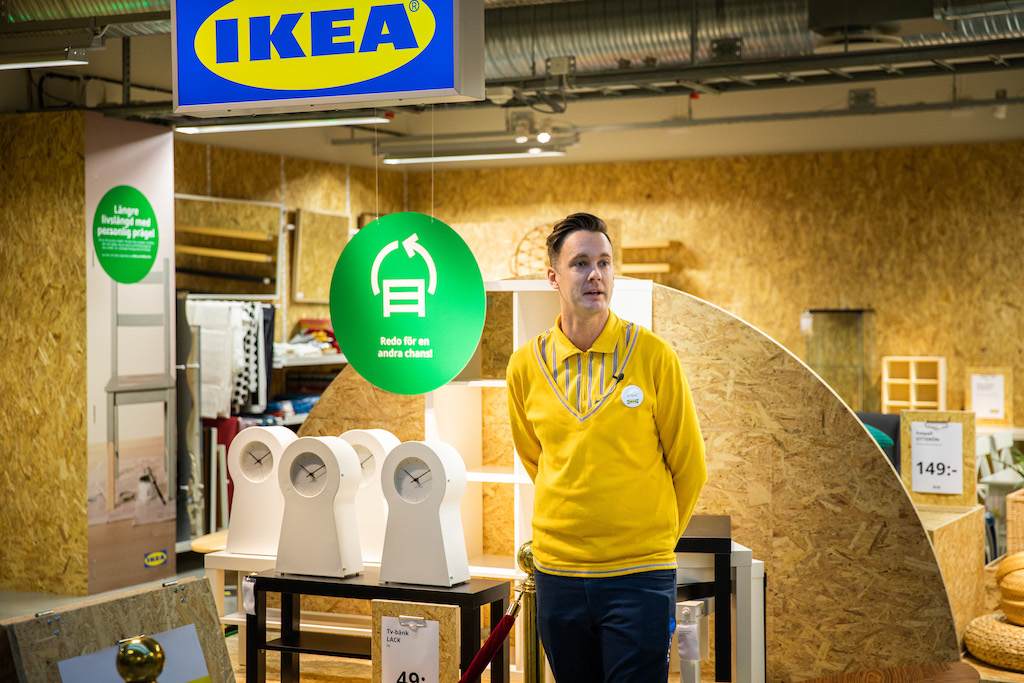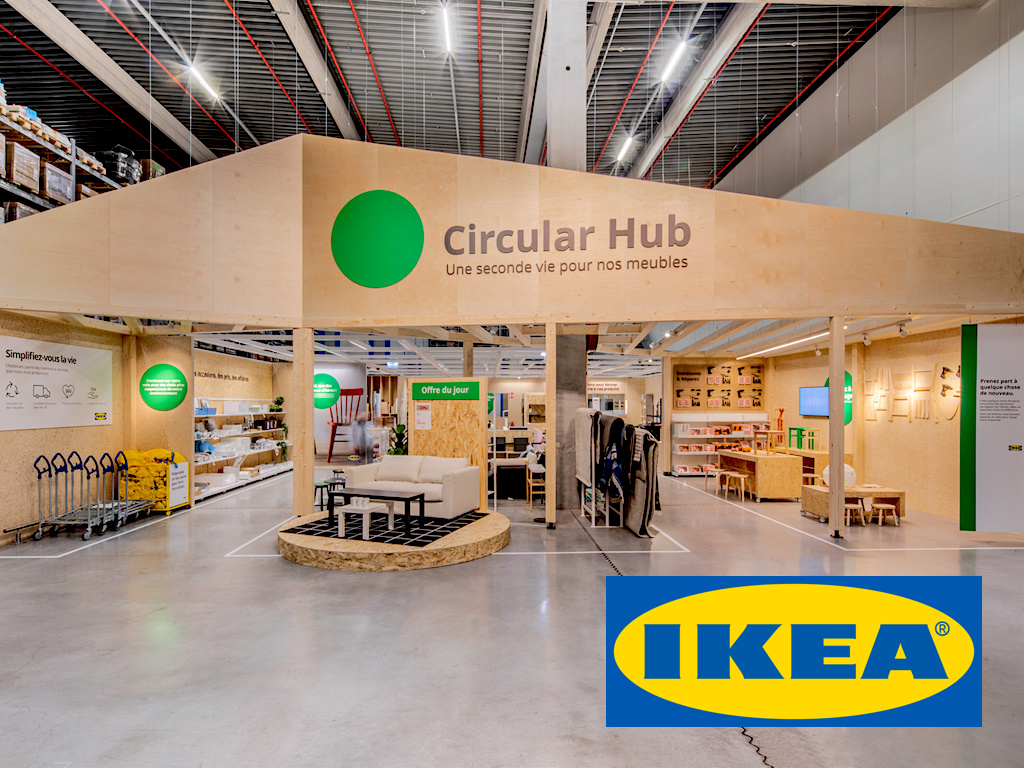3 Mins Read
IKEA has launched its much-anticipated secondhand furniture program around the world, as part of the retail giant’s goal to go fully circular by 2030. The new sustainable Circular Hub concept opening across IKEA stores were originally scheduled to land in November, but have experienced pandemic-related delays.
Swedish home furnishing giant IKEA has opened its buy-back and resale scheme to divert its fast furniture waste from going to landfills. Select stores will now have a separate Circular Hub area, where customers can browse through secondhand items at discounted prices. Old IKEA items can be returned to the company, in exchange for vouchers to spend in stores.
As-new condition preloved goods will be bought for 50% of the retail price, while furniture with minor scratches will be bought back by IKEA for 40%. Well used items will fetch 30% of the original price.

We learned enough from the pilots to tell us that this could be something of real value to us and our customers.
Hege Saebjornsen, COP26 Partnership Advisor for IKEA Group
The new scheme was initially set to launch in November last year, but was postponed until May due to the coronavirus pandemic. It is now available in a number of markets, including in the U.K. and Europe, South Korea and Japan, and is due to launch soon in the 26 other countries that IKEA operates.
Secondhand IKEA furniture will also be on sale online, via a new partnership the company has forged with the platform Gumtree, in addition to being showcased in dedicated Circular Hub sections of stores.
Speaking to the BBC, Hege Saebjornsen, environmental and sustainability expert at IKEA, said that the firm decided to go ahead with introducing the buy-back and resale scheme after multiple successful trials, including its first-ever secondhand concept in the town of Eskilstuna, located in the greater Stockholm region, which launched late last year.
“We learned enough from the pilots to tell us that this could be something of real value to us and our customers,” said Saebjornsen. Other places where IKEA held trials of the secondhand program included Sydney, Lisbon, Edinburgh and Glasgow.

All of this is part of IKEA’s goal to become a “climate positive” company. It says it wants to become a completely circular business within the next 10 years, and has previously pledged to incorporate a greater share of renewable and recycled materials.
IKEA has further considered rental services with the aim of prolonging the lifespan of their furniture, and reducing greenhouse gas emissions and waste. So far, the Swedish retailer has managed to recycle around 71% of the waste across its stores that are operated by parent company Ingka Group, with around 47 million products given a “new life” after being refurbished.
Other recent sustainability initiatives that IKEA has launched to capture the increasingly eco-conscious consumer base include launching a vegan “plant ball”, a meatball that has 4% of the carbon footprint compared to its animal-based counterpart, and introducing a “Home of Tomorrow” store concept featuring self-sufficient, low-waste and eco-friendly indoor fittings.
All images courtesy of IKEA.




